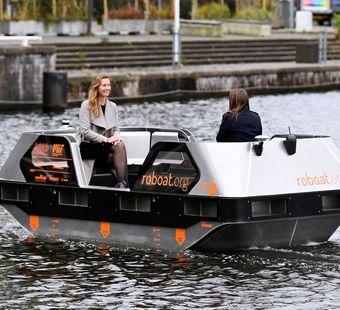The Covid-19 global pandemic accelerated the digitalisation on a global scale, including in Malaysia. Thousands of agile businesses, big and small, hopped on the fintech bandwagon and embraced these new technologies to keep their enterprises relevant, resulting in the unprecedented surge of the industry.
Fintech is now redefining the Banking, Financial Services and Insurance (BFSI) industry. In Malaysia, cashless or digital payments, e-wallets, insurtech, lending, digital remittances, blockchain, and crowdfunding make up half of the fintech market pie. Despite its early stage and hastened growth, fintech is the most phenomenal innovation of the decade.
Shaking Up Conventional Banking
The growth in Malaysian fintech is shifting the financial landscape, prompting conventional institutions to revolutionise their tack and methods to accommodate the new era of technology in finance. As a consumer-focused industry, it gains momentum from user-friendly features, prompt responses and availability. Consumers are made to feel more in control, empowered and in demand.
As the number of physical bank branches decline and teller machines reduce, conventional banks are rising to the occasion in embracing the new wave. Banks recognise the value of engaging with fintech companies to sustain and grow their operations and establish rapid go-to-market strategies.
Developments and changes to the Digital Laws of Malaysia also serve as proof of the growth of fintech in Malaysia. In December 2020, Bank Negara released the policy document on the licensing framework for digital banks which further supports the new development in global fintech and digital banking.
Malaysia Embracing the Change
According to the CEO of Malaysian Digital Economy Corporation Sdn Bhd (MDEC) Mahadhir Aziz, the Movement Control Order in 2020, saw three million new mobile banking service subscriptions. The great change in customer preferences and necessities due to the lockdown prompted the wake of digital channels: cashless payments, driving e-wallet usage, online platforms for groceries and delivery service-based businesses.
In this article, Mahadhir also mentioned that the Malaysia further propelled cashless adoption when the e-Tunai Rakyat programme and the ePenjana initiative were introduced, providing cash handouts via e-wallets like Touch ‘n Go, Boost, and Grab.
Regulators and Support
With the change in consumer demand and expectation, Malaysia has been catching up with the trend. Under Budget 2021, MDEC rolled out the Go-eCommerce Onboarding and Shop Malaysia Online campaigns, with the objective to further encourage businesses to head towards digital commerce and payment systems, while boosting cashless and online transactions. The initiative generated over RM6.45 billion in sales for Malaysian businesses, totalling over 153.92 million transactions.
Employment Market Change-up
The fintech sector in Malaysia has been on an impressive trajectory with some even extending their services outside of the country, creating a wealth of new employment opportunities. With the strong support from the government, regulators, and industry players, Malaysia is becoming one of the most vibrant and robust fintech hubs in Southeast Asia. Ernst & Young’s 2018 ASEAN FinTech Census referred to Malaysia as an “emerging FinTech hub in Asia”, ranking it ahead of most countries in the region.
The fintech employment sector is dynamically growing, with many financial organisations seeking more agile and unorthodox candidates. Customer service, designers, app creators, data analytics, digital finance, creative branding, marketing and communications staffing are becoming in demand in great numbers as older financial companies are rebranding themselves as media-centric and digital-savvy, by creating new tech companies launched to gain market reach and stay in demand.
Digital Is the New Normal
The Malaysia Financial Sector Blueprint 2022-2026 outlines strategic methods to leverage on the rapid pace of digitalisation, including to non-bank payment service providers, as well as exploring the application of technological innovations and digital activities.
Fintech in its full potential is already cultivating AI-enabled analytics, trawling customer data providing direct access to purchasing behaviours and demographics. This allows companies to offer an expansive and targeted range of digital financial services such as personalised insurance policies, credit, wealth and investment management and loans provisions to previously untapped consumers.
As Malaysia moves towards Fintech 4.0, almost all platform of digital banking and finance technologies are being adopted on abigger scale. For example, it has seen the increased awareness and usage of e-wallet, e-commerce, Buy Now, Pay Later platforms and other digital financial services.
Malaysians are ever more familiar with the efficacy of digital channels and financial services, therefore expectations of financial transactions and how we do it on a daily basis will continue to evolve towards digital first in every aspect of life.
--





